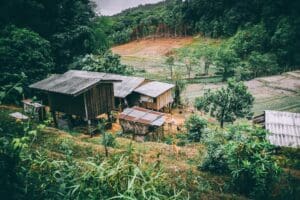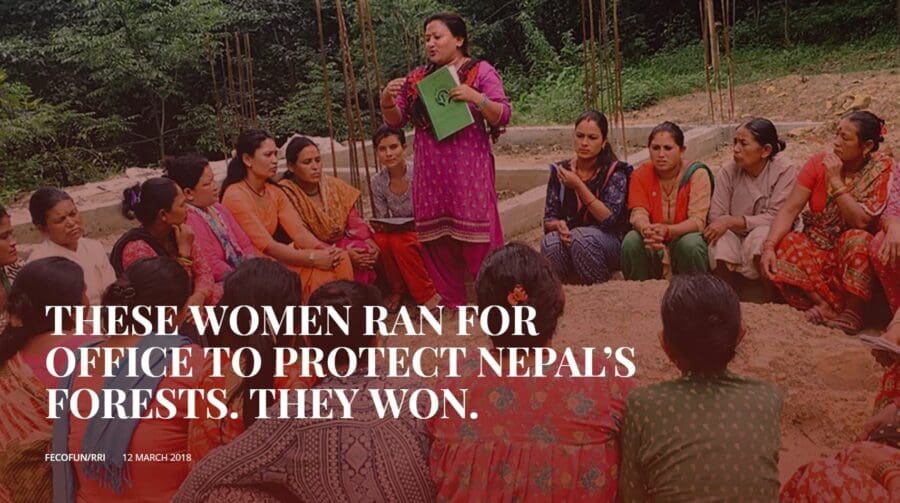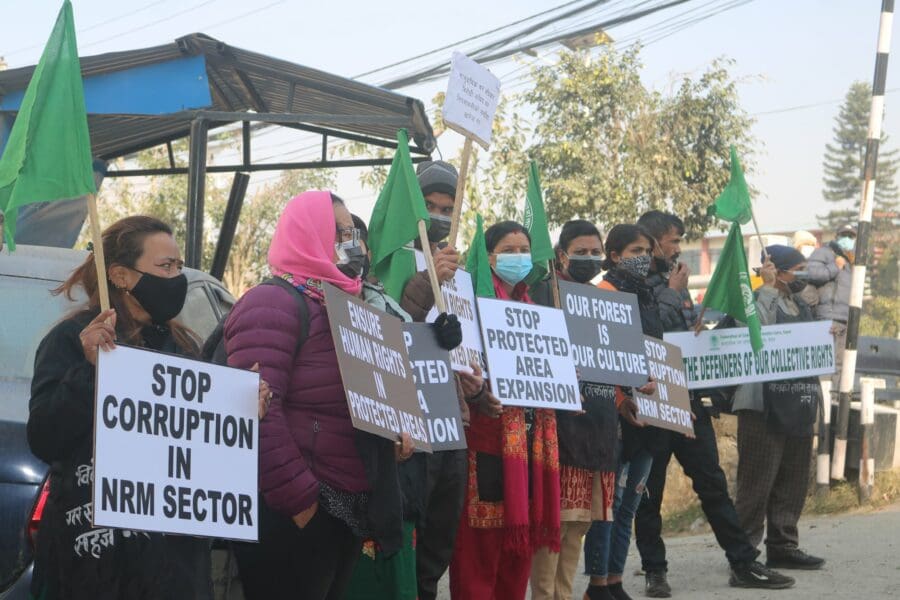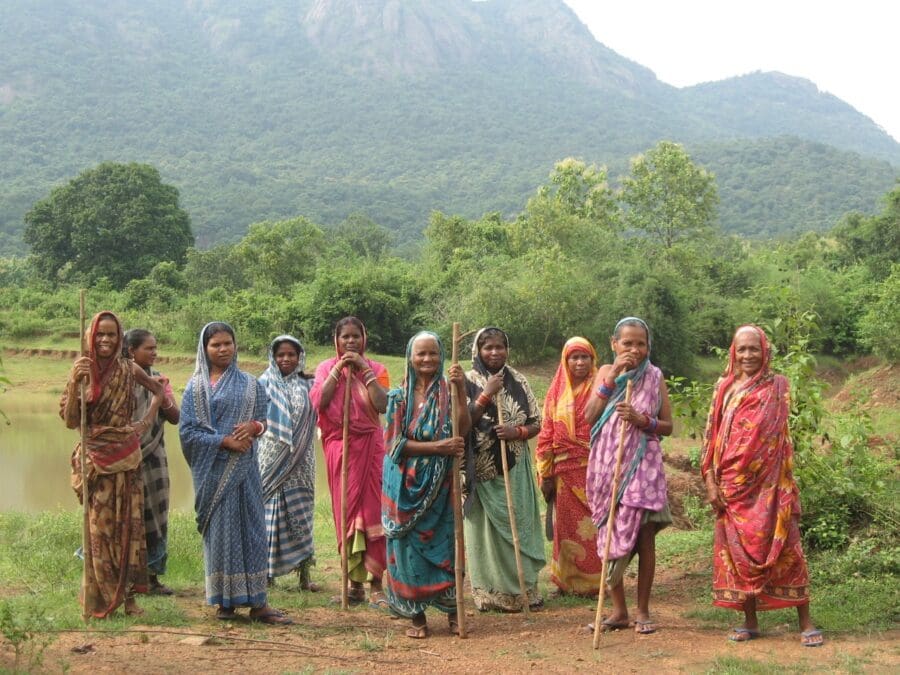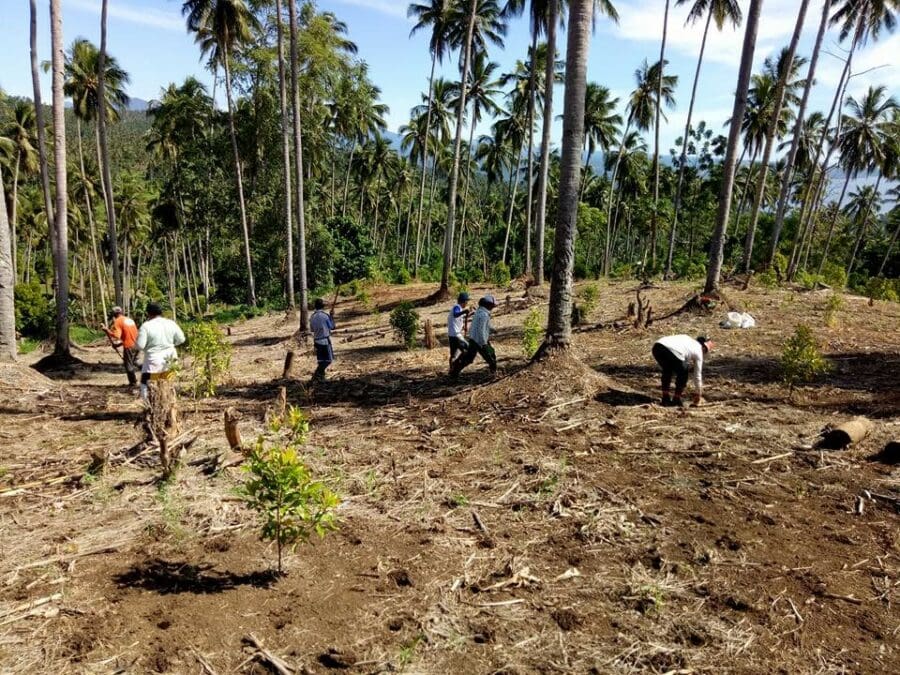Starting in June, peaking through August and winding down by September, the monsoon season brings rain, humidity, and an increase in temperatures across most of Nepal. In the valleys, views of the Himalayan mountains are often obscured by clouds, temperatures get uncomfortably high, and humidity levels rarely dip below 100%.
Last year, these cyclical monsoon rains were accompanied by a deadly second wave of the global COVID-19 pandemic, with torrential rains, dilapidated roads, and mudslides piling on country-wide lockdowns and medical emergencies.
In May, Nepal’s COVID-19 positivity rate was 46.7% – the highest in the world – even though testing rates remained abysmally low and likely contributed to severe underreporting, particularly in rural and forested areas home to the country’s most vulnerable local and Indigenous communities.
Despite these challenges, Nepal’s Indigenous women – known for their role in the country’s achievements in community forestry – found ways to adapt and support their communities while adhering to pandemic safety guidelines, demonstrating their inspiring resilience once again.
Generating green jobs amidst economic recovery
In Nawalpur district, 197 km southwest of Kathmandu, women from the Tharu and Kumal tribes in Madyavindu Municipality worked together throughout the 2021 monsoon season planting lime trees on over 25 hectares of government and privately-owned farmland, restoring degraded land through horticulture during a province-wide lockdown.
While respecting safety and social distancing guidelines, the women cultivated and cared for the mature lime trees to ensure a productive harvesting season while planting new seedlings – activities previously impeded by their time spent away from home and the community before the pandemic.
“We were not able to sell our products due to the lockdown, but the increase in lime production has allowed us to store the limes for a longer duration,” said Nira Tharu, one of the women involved in caring for the lime trees.
This act of safely planting and cultivating lime trees while adhering to lockdown restrictions has not just restored degraded farmland, but also contributed to the improvement of the women’s livelihood by generating more green jobs in the community. In fact, the women are now expanding their enterprise to include pickle production, in hopes of generating more income.
Their traditional knowledge and socio-economic success have drawn attention from several government representatives and the Jagaran Community Development Center, a local organization working in the area, and have received support in the form of grants and financial subsidies to scale up their lime and pickle production.
“The lime cultivation has strengthened us women: emotionally, mentally, and financially admidst the pandemic,” said Nanda Kumari Mahato.
In a year marked with uncertainty, tragedy, and a monsoon season that lasted late into the season, the women of the Tharu and Kumal tribes in Madyavindu Municipality are just one example of Indigenous women adapting to new circumstances and thriving.

